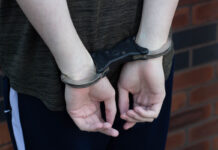

ACCORDING to the Scottish Grocers’ Federation, converting to the new licensing system has cost its members £22.4 million – and for some supermarkets, convenience stores and garage forecourt shops there’s more expense on the horizon.
As the law presently stands, a late hours catering licence is required under the Civic Government (Scotland) Act 1982 for the sale of meals or refreshment to be consumed on or off the premises between 11pm and 5am the following morning. The provision was originally designed to prevent public nuisance being caused late at night at takeaways in residential areas.
At the moment not every business is affected.
Several councils take a pragmatic view. For example, some will only insist upon a licence if premises sell hot food and beverages, like, for example, a filling station or shop with a tea and coffee machine.
But now all local authorities throughout the country will have to implement the system unless they decide they wish to deregulate late night catering, and that’s pretty unlikely.
From October 1 this year, a licence will be required if ‘food’ is being sold between 11pm and 5am – anything from a packet of chewing gum to a beef joint.
There’s an exemption for premises being ‘used as such’ under the Licensing (Scotland) Act 2005 – so that normally spares pubs and restaurants serving food during licensed hours – but, of course, shops can’t sell alcohol beyond 10pm.
Note, however, that particular arrangements are presently in place in the Edinburgh council area and if you operate in the city you may be saved the need to apply for a late hours catering licence subject to the content of your premises licence operating plan.
If you’re set to be affected by the change, you must lodge an application no later than September 30: taking that step means you can continue trading past 11pm until the application has been finally determined (taking into account any appeal process if the application is turned down).
The reason for the change? The Scottish Government has seen fit to adopt a task group recommendation justifying the move because of “the potential for large numbers of people leaving pubs, nightclubs, etc. late at night to cause a disturbance… this potential exists regardless of whether the food or drink has been cooked or pre-prepared in any way”.
I find it hard to conjure up the image of droves of revellers bent on antisocial behaviour heading for the local Spar, Londis, or whatever, in a desperate search for a can of soup or a bag of crisps.
So, here’s another unwelcome – and in my view unnecessary – regulatory burden on businesses.
The legislation provides for licences lasting one, two or three years – but some councils will only grant one-year licences costing up to £500 and it’s also possible that an application could be refused.
For those trading after 11pm only during certain times of the year, there’s provision for temporary licences lasting not more than six weeks and the possibility of an application for an exemption for a “particular occasion” or a specified period not exceeding two months in any period of 12 months.
In my experience, both of these routes are usually unattractive in terms of cost and the paperwork involved and a “full” licence is the better option.
Apart from the expense, there could be over the top bureaucracy.
One council asks for health detail; if anyone involved in the day-to-day operation of the premises suffers from a disability or an allergy that could affect their ability to operate, they need to know. It also looks for a letter from the local planning department confirming the planning position, a sketch plan of the premises, a copy of the third party liability insurance policy and a letter of consent from the owner of the property if it’s tenanted.
Selling food after 11pm without a licence could result in a conviction leading to a £20,000 fine and/or six months in jail – so take professional advice now if you’re not sure how the new law will affect your business.























